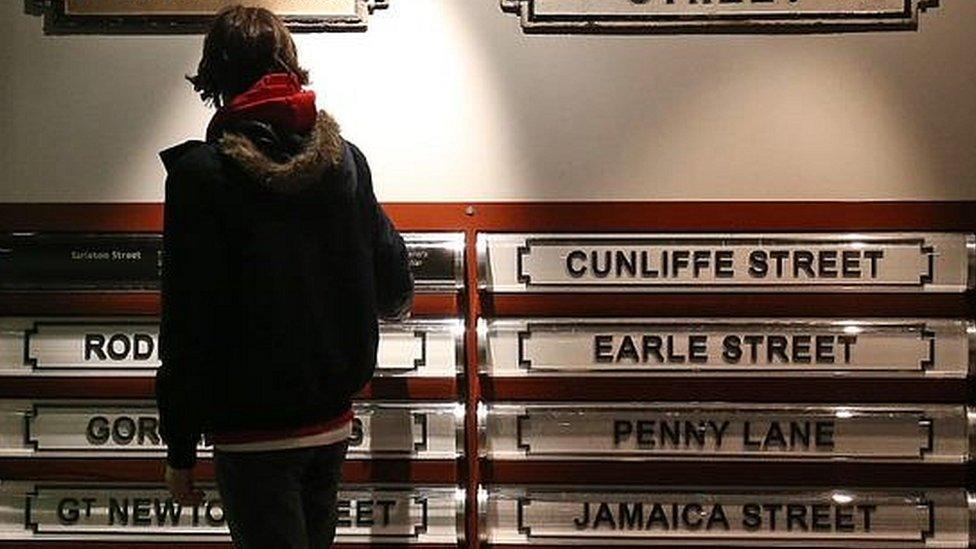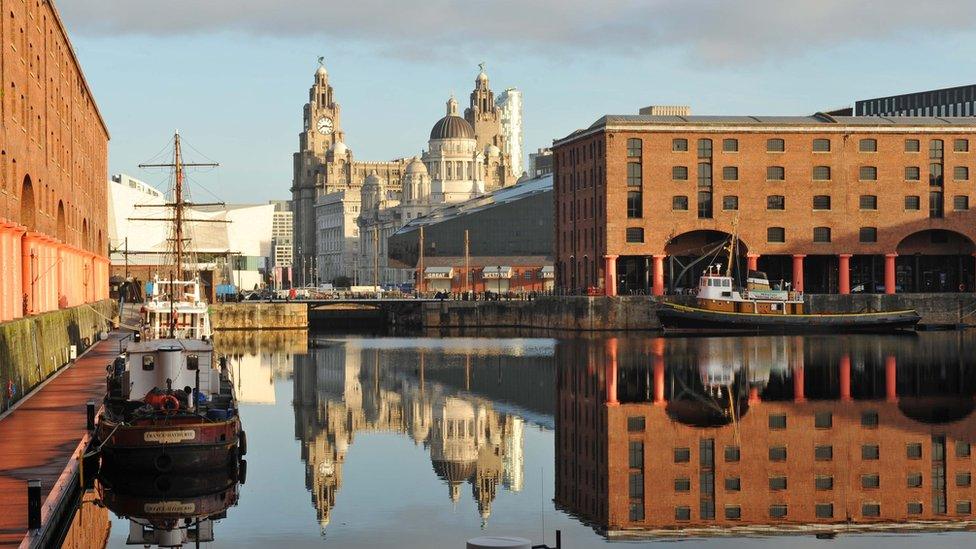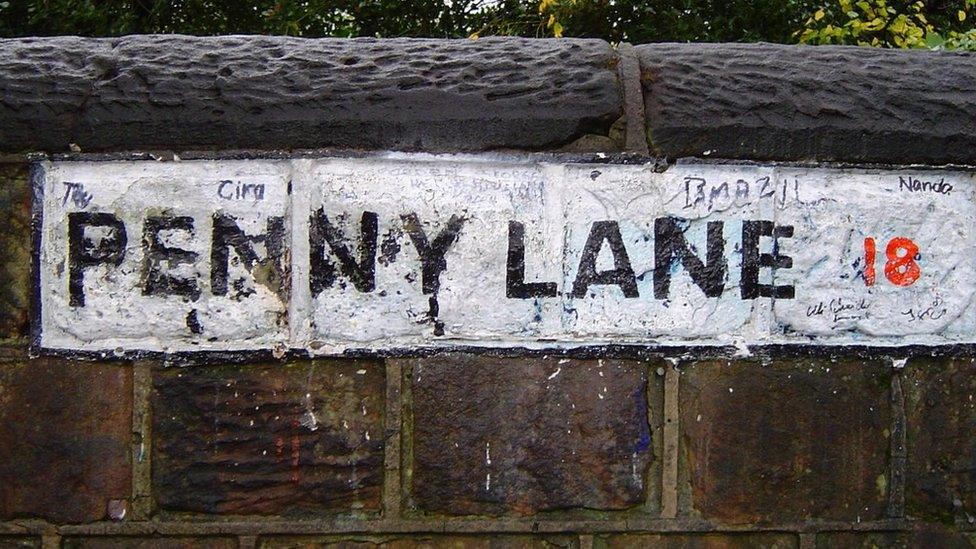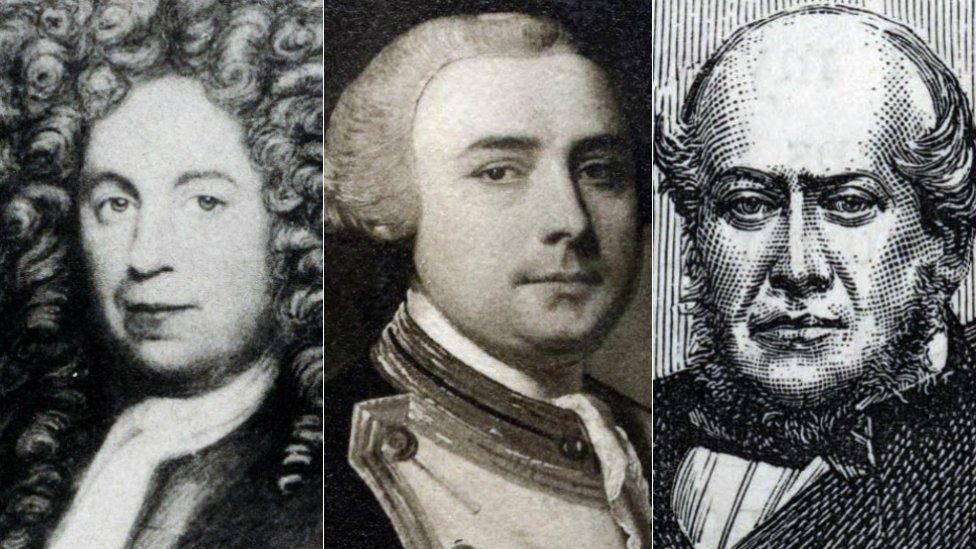Liverpool identifies first streets for slavery plaques
- Published

Street names associated with slavery are displayed in Liverpool's International Slavery Museum
The first twenty streets in Liverpool to be considered for plaques explaining their slavery links have been revealed.
Liverpool City Council agreed in January that plaques would be used to explain the city's heritage on statues, buildings, monuments and street names.
Included in the list are well-known locations such as Bold Street, Seel Street and Falkner Square.
All the streets are named after slave traders or places connected with the Atlantic slave trade.
Earlier this year, Mayor Joe Anderson asked National Museums Liverpool and a number of community organisations to advise on how the city's history is told for both visitors and residents.
He said: "I do not believe that changing street names is the answer - it would be wrong to try and airbrush out our past.
"We need to judge the past with a historical perspective, taking into account today's higher ethical standards and, most importantly, how everyone, from every community in the city feels about it.
"As we understand our past we can also focus on our future for the black and BAME communities in our city."
'Global attention'
Much of the city's 18th Century wealth came from British slavers transporting Africans across the Atlantic.
Dr Richard Benjamin, of the International Slavery Museum, said the move "paves the way towards contextualising transatlantic slavery" in the city.
He said: "We are witnessing debates about problematic monuments, decolonising museum spaces and education systems and social movements such as Black Lives Matter are rightly gaining global attention.
"Museums need to be at the forefront of these conversations."
This first streets are:
Falkner Square
Falkner Street
Blackburne Place
Bold Street
Seel Street
Slater Street
Colquitt Street
Parr Street
Tarleton Street
Clayton Square
Brooks Alley
Campbell Square
Hardman Street
Cases Street
Cleveland Square
Goree
Houghton Street
Knight Street
Oldham Street
Renshaw Street
Sir Thomas Street
All the streets in the list are in areas that often feature in walking tours of the city.
The next step is to identify a suitable location to place a plaque in each street, said a council spokesman.

Why not follow BBC North West on Facebook, external, Twitter, external and Instagram, external? You can also send story ideas to northwest.newsonline@bbc.co.uk, external
- Published8 June 2020

- Published10 January 2020

- Published15 January 2020
